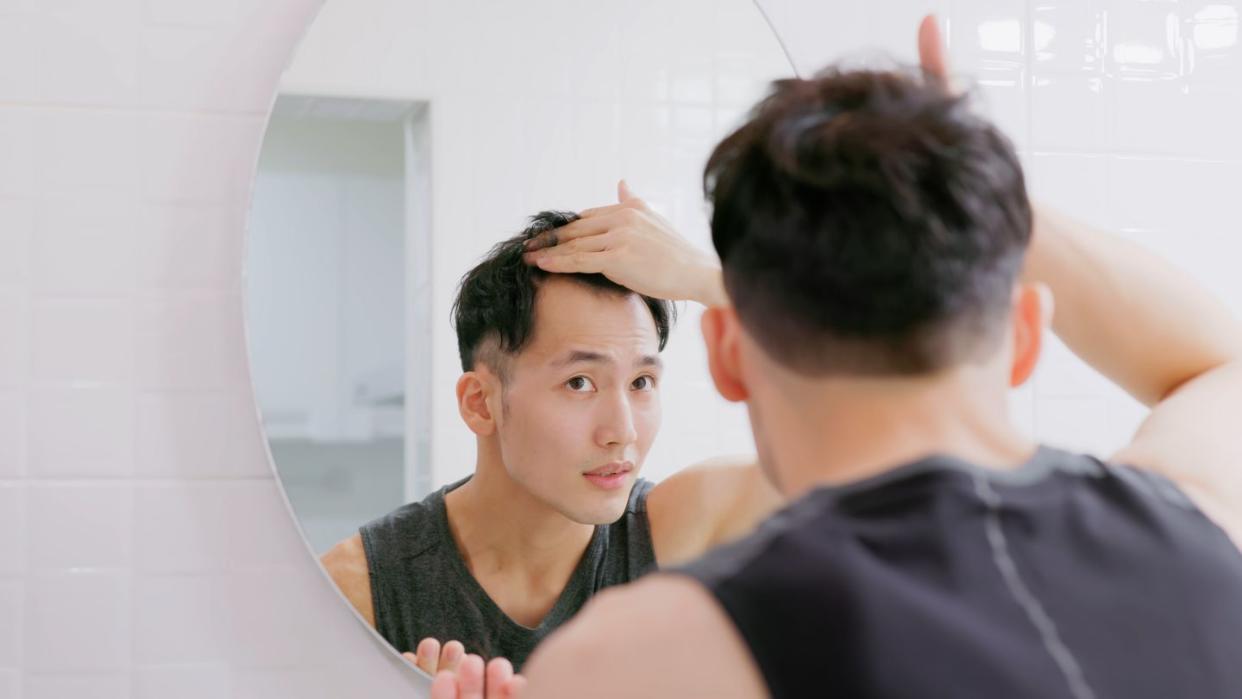A Urologist Explains the Link Between TRT and Male Pattern Baldness

MALE PATTERN BALDNESS, also known as androgenic alopecia, is something that affects a lot of guys—and there is some evidence in particular to suggest that men undergoing testosterone replacement therapy (TRT) are at a higher risk of hair loss.
In a new video on her YouTube channel, urologist Dr. Rena Malik breaks down the scientific connection between TRT and male hair loss. She starts by explaining that there are a wide range of issues and contributory factors in hair loss, including stress, poor nutrition, certain medications, and grooming habits such as tying long hair back into especially tight buns. Genetics also play a huge role here, so looking at your parents and whether they've experienced hair loss can be a pretty good initial indicator of whether you may encounter baldness or thinning in the future.
How does testosterone affect our hair?
Every day, between 6 and 8 percent of the testosterone created by a man's body is converted to dihydrotestosterone (DHT), which serves an important range of functions in young men, such as the formation of secondary sexual characteristics like body hair and pubic hair. "As you age, sometimes that DHT can contribute to other issues like having an enlarged prostate, or hair loss," Malik notes.
DHT can bind onto hair follicles, weakening them over time. However, that doesn't mean that hair loss is a certaintly. She continues: "it's probably that in men who are predisposed, who have a genetic abnormality that makes them more likely to have hair loss, when they get that increase in DHT, they're more likely to see that male pattern hair loss when they may not have without it."
However, in a study of transgender men who are using TRT as part of their medical transition, 5 to 17 percent were found to develop some hair loss in their first year of TRT. Another small study found that of those who did develop alopecia, the majority of cases were mild.
"Could testosterone replacement speed up male pattern hair loss? Absolutely. But likely it's because you're already genetically predisposed to getting hair loss," says Malik. "Ultimately, there are a whole host of benefits to testosterone... so if hair loss is a big concern for you, it's important to know that yes, it may speed up your hair loss, and maybe 1 in 5 or less will develop some hair loss when starting testosterone."
If you are suffering hair loss, regardless of whether or not you're on testosterone, Malik encourages you to consult a dermatologist who may be able to help you identify any underlying medical causes and potentially offer treatment.
You Might Also Like

